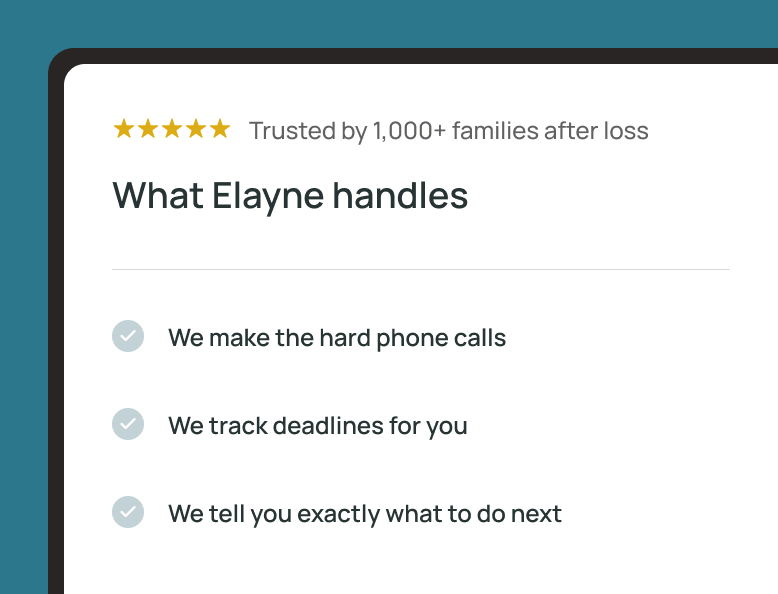Writing an obituary for your dad is a big responsibility, especially when emotions are high and time is limited. But it’s also a meaningful way to honor his life and share his story with others. An obituary for a father is more than just a list of facts. It’s a tribute to the person he was, the legacy he leaves behind, and the memories that will continue to live on.
In this guide, we’ll walk you through how to write an obituary for a father, offer tips for adding personal touches, and provide a sample template you can use and adapt for your family.
What to Include in an Obituary for a Father
An obituary serves two purposes: it informs others of your father's passing and celebrates his life. Here are the key elements to include:
- Full name, age, and date of death
- Birthdate and birthplace
- Names of surviving and predeceased family members
- Details about the funeral or memorial service: date, time, and location
- Where to send condolences, flowers, or donations
Whether you're submitting the obituary to a local newspaper or posting it online, these foundational details ensure that people receive the necessary information to pay their respects and offer support. Including them is essential when writing an obituary for a father.
Adding Personal Touches
While the basic facts are important, it’s the personal touches that make an obituary feel heartfelt and memorable. As you think about how to write an obituary for your dad, consider the following:
- What made him unique? Share details about his career, hobbies, interests, or passions.
- Highlight his roles: Was he a loving father, a devoted grandfather, a dedicated volunteer, or a respected mentor?
- Did he have any favorite sayings, family traditions, or milestones he was proud of?
- Balance the factual with the emotional—let your father’s personality shine through.
The most meaningful obituaries are those that reflect who he truly was, both in his public and private life.
Tone and Length Guidelines
Tone and length will often depend on where the obituary is being published:
- Short format (150–250 words): Ideal for newspapers or printed programs.
- Longer versions (400–600 words): Better suited for funeral home websites or online memorial platforms.
Keep the tone respectful, but don’t be afraid to let warmth and affection come through. It’s okay to smile through tears. An obituary can capture humor, kindness, strength, and even the quirks that made your dad who he was.
Examples of Obituaries for Fathers
Simple Example (for Print):
John Edward Miller, 78, of Denver, CO, passed away on August 30, 2025. Born on February 10, 1947, in Chicago, IL, he was the son of the late Thomas and Margaret Miller.
John is survived by his wife of 52 years, Susan, and their children Michael (Rachel) and Karen (David), along with four grandchildren.
A private memorial service will be held for family and close friends. In lieu of flowers, donations may be made to the American Heart Association.
Expanded Example (for Online Sharing):
John Edward Miller, 78, of Denver, Colorado, passed away peacefully on August 30, 2025, surrounded by family. He was born on February 10, 1947, in Chicago, Illinois, to Thomas and Margaret Miller.
A devoted husband, father, grandfather, and friend, John married Susan in 1973, and together they raised two children. He spent over 35 years as a high school science teacher and was known for his wit, patience, and love for astronomy.
He is survived by his wife Susan; his children Michael (Rachel) and Karen (David); and his grandchildren Emily, Jack, Nathan, and Lily. He was preceded in death by his parents and his sister, Diane.
John's joy for stargazing, Sunday barbecues, and telling "dad jokes" will be fondly remembered. A memorial service will be held on September 10 at 2 p.m. at Green Meadow Chapel. Donations in his memory can be made to the Denver Science Museum’s education fund.
These examples show how tone, length, and detail can vary depending on the audience and platform.
Template for an Obituary for a Father
If you're unsure where to begin, here’s a structure you can follow:
[Full name], [age], of [city/state], passed away on [date]. He was born on [birthdate] in [birthplace] to [parents’ names]. [First name] married [spouse’s name] in [year], and they shared [number] years together.
He is survived by [list immediate family members, such as children and grandchildren]. He was preceded in death by [list parents, siblings, or spouse].
[First name] will be remembered for [highlight qualities, achievements, or passions]. His love for [specific activity or value] will continue to inspire those who knew him.
A service will be held at [time, date, location]. In lieu of flowers, donations may be made to [charity or cause].
You can adjust this template as needed to reflect your father’s life more fully.
How to Share the Obituary
Once the obituary is written, here’s how to share it:
- Submit to local newspapers: Most have guidelines and word limits.
- Send to the funeral home: Many post obituaries on their websites for free.
- Post on social media: Share the obituary and invite others to comment or share memories.
- Create a digital tribute page: Websites like Legacy.com or Ever Loved allow for photos, guestbooks, and long-term remembrance.
FAQs
Q: How to write an obituary for your dad if you don’t know what to say?
Start with the basics—name, dates, family—and then ask others to share stories or memories. Even a short, heartfelt message is meaningful.
Q: How long should an obituary for a father be?
It depends on the platform: 150–250 words for newspapers, 400–600 words for online tributes.
Q: What should you not include in an obituary?
Avoid listing exact addresses (for privacy), financial details, or anything that could be controversial or cause distress.
Q: What makes a meaningful obituary for a father?
One that reflects who he truly was—his values, his humor, his love for family—and how he impacted others.
Writing an obituary for a father is a task that’s filled with emotion, reflection, and love. Whether you write a short announcement or a detailed tribute, the most important thing is that it honors your dad in a way that feels true. By sharing his story, you keep his memory alive—not only for those who knew him, but for future generations who will come to understand the kind of man he was.
If you’re still unsure how to write an obituary for your dad, use the template above as a starting point. There’s no perfect way to do it, only a personal and heartfelt one.












































